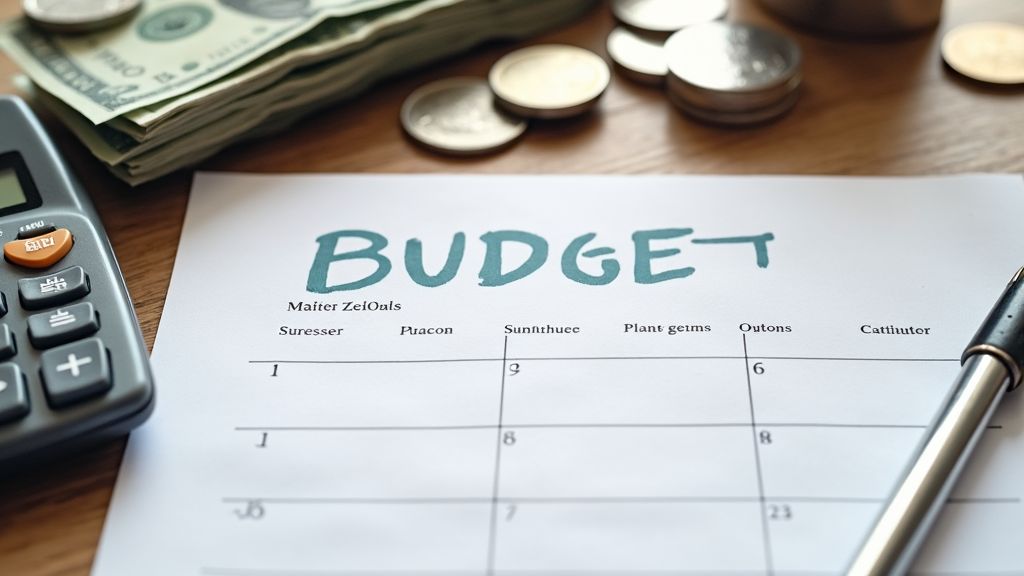Mastering Your Finances: Top Tips for Budget Management
Managing your budget effectively can seem like a daunting challenge, especially with an array of financial responsibilities and goals. Here are ten crucial tips that will guide you on your journey to mastering budget management and securing your financial future.

Set Clear Financial Goals
Before you can master a budget, you need to know what you’re aiming for. Set clear, achievable financial goals, whether that’s saving for a house, paying off debt, or building an emergency fund. Clear goals provide direction and motivation.
Track Every Expense
Keep a record of every expense, no matter how small. Lizzie, a financial advisor, says, ‘Tracking your spending habits provides a clear picture of where your money goes and where you can cut back.’ Use apps or a simple spreadsheet to monitor your expenses daily.
Create a Realistic Budget
Design a budget that mirrors your actual income and expenses. Be realistic about what you can afford. John, a budgeting expert, emphasizes, ‘An unrealistic budget sets you up for failure. Ensure your budget reflects your lifestyle and financial situation.’
Prioritize Needs Over Wants
Differentiate between essential needs and non-essential wants. Prioritize spending on needs like housing, utilities, food, and healthcare before allocating funds to discretionary expenses like dining out or entertainment.
Automate Savings
Make saving effortless by setting up automatic transfers from your checking account to your savings account. Jenna, who successfully saved up a year’s worth of expenses, stresses, ‘Automating your savings ensures regular contributions without needing to think about it.’
Review and Adjust Regularly
Your budget is not a ‘set it and forget it’ document. Review it regularly and make adjustments as necessary. Life changes, and so should your budget. Rebecca, a personal finance coach, suggests quarterly reviews to stay on track.
Avoid Credit Card Debt
Credit card debt can quickly become unmanageable. Aim to pay off your balance in full each month to avoid high-interest charges. Michael, a debt counselor, advises, ‘High-interest debt can derail your budgeting efforts. Minimize credit card use to what you can afford to pay off monthly.’
Build an Emergency Fund
An emergency fund is crucial for unexpected expenses such as medical bills or car repairs. Start with a goal of saving $1,000 and then build up to three to six months’ worth of expenses. Anna, who successfully managed to cover an unexpected job loss, highlights, ‘An emergency fund provides peace of mind and financial stability.’
Plan for Irregular Expenses
Irregular expenses, like annual subscriptions or car insurance, can throw off your budget if you’re unprepared. Allocate a portion of your monthly budget for these less frequent costs to avoid financial surprises.
Stay Disciplined but Flexible
Discipline is key to sticking with your budget, but flexibility is equally important. Unexpected expenses and changes are inevitable. Adapt your budget as needed without swaying off your financial goals. Peter, a financial planner, says, ‘Balance discipline and flexibility to ensure long-term success in budget management.’
